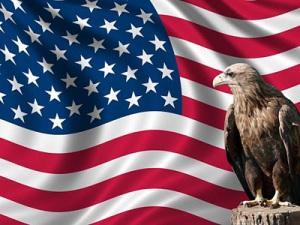
Have you ever been ridiculed for believing a “conspiracy theory”? If so, think back and ask yourself what was the social and economic position of the person who did the ridiculing? I’m willing to bet they were either middle-class, upper middle-class, or lower upper-class. I make that deduction knowing that in order to even consider a conspiracy theory, let alone believe in one, a person has to be aware of the nature of evil.
Pick a conspiracy theory, any conspiracy theory, whether Sandy Hook, Boston, JFK, RFK, you name it, and at its root you’ll find evil.
People in those social and economic groups I mentioned – the middle-class, upper middle-class, and lower upper-class – have led pampered lives and tend to be very naive when it comes to evil. They’ve been educated at Columbia, Harvard, Yale, Stanford, and other fine schools. It’s hard for them to even imagine the kind of evil behind an assasination or a false flag terrorist act. They’ve read about evil, perhaps, but very few of them have ever experienced evil. (Not so for the lower class and upper class. They understand evil very well. Indeed, many of them have participated in evil.)
J. Edgar Hoover said it best: “Yet the individual is handicapped by coming face to face with a conspiracy so monstrous he cannot believe it exists. The American mind simply has not come to a realization of the evil which has been introduced into our midst. It rejects even the assumption that human creatures could espouse a philosophy which must ultimately destroy all that is good and decent.”
For the vast majority of people, the notion that this kind of evil exists is so frightening, it causes a shutdown or disconnect in the brain. That’s why so many otherwise intelligent people refuse to even look at the evidence involved in conspiracy theories. It’s similar to a wife’s reaction when she hears her husband has molested their daughter: denial, followed by an attack on the messenger.
And then for men there’s the courage issue. One of the male’s primary functions is to protect the family and the community from outside aggressors. When a man studies the evil involved in a conspiracy, such as Sandy Hook or Boston or the Vince Foster murder, he soon realizes that his country is being attacked, and now, if he’s a real man, he is obligated to do something about it. If not, he’s a coward, and short of being called a homosexual, calling a man a coward is the worst insult you can hurl at him.
So what do most men do? They take the easy way out. They deny the evil by denying the conspiracy. By refusing to even look at the evidence, no one, not even their own conscience, can call them a coward.
The more fearful a man is of losing face at his own lack of moral courage, the more aggressive he becomes in attacking those who present evidence of conspiracies. This fear is so powerful that many of them actually believe the lies they tell themselves.
It takes courage to confront evil. And of all the qualities that run the gamut of human emotion, courage just might be the rarest of all.

